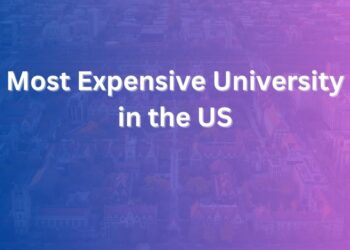The idea of search engine optimization is an attractive one; with a relatively small investment, you could feature your website more prominently in search engine results pages (SERPs) and earn more organic traffic. If you can scale effectively, and continue fending off your top competitors, you could end up seeing very lucrative results for a relatively small investment.
But search engines like Google intentionally make SEO difficult – and it can be very hard to learn from scratch.
Why is SEO so hard and what can you do about it?
The Learning Curve
There are several reasons why SEO is hard to learn, and almost all of them connect back to Google in some way.
For example, SEO is hard to learn in part because Google’s algorithm is very complicated, and there are more than 200 significant ranking factors you’ll need to consider when optimizing your website. Obviously, Google’s search algorithm is incredibly powerful and convenient, so it makes sense why it would be this complicated. But it’s still a lot to learn for a newcomer.
Additionally, Google intentionally obfuscates details related to its algorithm. The company doesn’t publish how the algorithm works, nor does it always announce when there are new algorithm updates pushed. In line with this, Google makes it difficult to find certain pieces of information related to SEO campaigns; for example, there’s no convenient Google tool that helps you keep track of your organic rankings for specific keywords. You’ll need a third party for that.
It doesn’t help that Google’s algorithm is constantly evolving. In other words, by the time you learn all the fundamentals, some of those fundamentals may have been overwritten by new updates. Search engine results pages (SERPs) and the processes that create them rarely look the same from year to year.
These are a few strategies you can use to get over the learning curve:
- Hire experts. Long Island SEO professionals, firms, and agencies have been working in the field for many years, and they know almost everything there is to know about modern SEO. If you have the budget to pay for them, they can take care of almost everything on your behalf. Better yet, they’ll keep up with all the new changes, so you don’t have to worry about them.
- Start with the basics. If you prefer the DIY approach, take comfort in knowing you can start with the basics. You don’t need to compete on a national level, nor do you need to spend tens of thousands of dollars right away; even simple optimization techniques like improving your page speed and writing better content can help you in the beginning.
- Keep experimenting. Any competent SEO expert will tell you that effective optimization is a sort of ongoing experiment. We don’t always know for sure which tactics will work; that’s why we use a blend of different tactics, measure the results, and keep whatever works.
Google’s Motivations
Why does Google make it so hard for us to practice SEO?
There are several motivations in play:
- Minimize competition. On some level, Google is just practicing a form of proprietary protection, the same way any company would. If Google were to completely and openly publish its search algorithm, a competitor could easily copy or mimic it. This is a kind of trade secret, and one that Google closely guards.
- Fight back against spam. In the early days of SEO, most optimizers acted with little to no scruples, taking advantage of loopholes and manipulating search results with reckless abandon. Early iterations of keyword stuffing, for example, involved webmasters copying and pasting keywords and phrases all over their website, even hiding them in the background so users weren’t aware of the spam. Part of Google’s motivation is to fight back against this spam.
- Improve overall user experiences. The entire reason for Google’s search algorithm is to improve overall user experiences. If Google told companies all over the world what they needed to do to manipulate rank, they would probably manipulate their rankings by any means necessary, ultimately detracting from the average user experience.
- Preserve neutrality. Most of us recognize that Google isn’t truly a neutral force. Even so, Google strives for at least some neutrality. Making SEO difficult and less accessible is a way to level the playing field, preventing a handful of elite practitioners from Google dominating search, the internet needs crawl neutrality ominating the web.
Google isn’t necessarily against search optimization; in fact, we could argue that Google wants websites to practice search optimization because it generally means providing better experiences to users. That said, Google intentionally makes some aspects of SEO harder to minimize spam and problematic developments. As long as you’re aware of this, you can work around it, and get the optimization results you’ve always wanted.







